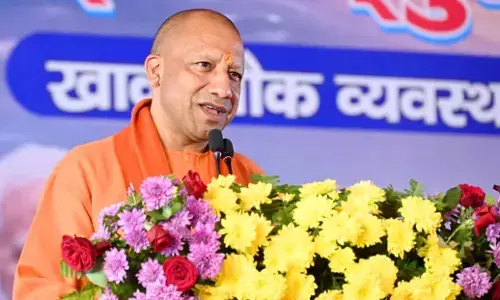Stock markets closed in green; Sensex gains 113 points & Nifty ends at 17,248

Sensex gains 113 points & Nifty ends at 17,248
- As per provisional closing data, the Sensex at the Bombay Stock Exchange gained 113.11 points, or 0.20 per cent, to end at 57,901.
- The Nifty 50 at the National Stock Exchange gained 27 points, or 0.16 per cent, to 17,248.40.
Benchmark indices broke a four-day losing trend on Thursday, December 16, 2021, and closed in positive territory. The market witnessed strong demand in IT, oil & gas and consumer durables.
As per provisional closing data, the Sensex at the Bombay Stock Exchange gained 113.11 points, or 0.20 per cent, to end at 57,901.14, in a choppy session. The Nifty 50 at the National Stock Exchange gained 27 points, or 0.16 per cent, to 17,248.40. However, the Nifty Bank index lost 240.90 points, or 0.65 per cent, and closed at 36,548.65. In the sectoral indices at the NSE, almost all the indices ended in red except Nifty IT, Nifty Consumer Durables and Nifty Oil & Gas.
The broader market at the BSE underperformed the Sensex as S&P BSE MidCap fell 0.70 per cent and S&P BSE SmallCap dropped 0.65 per cent.
The market breadth was negative. On the BSE, 1,515 shares rose and 1,834 shares fell. On the Nifty 50 index at the NSE, 28 shares advanced and 22 shares declined. The top five gainers of Nifty today were Bajaj Finance (up 2.89 per cent), Infosys (up 2.47 per cent), BPCL (up 1.96 per cent), Wipro (up 1.54 per cent) and Reliance (up 1.72 per cent). The top five losers were Hindalco (down 1.77 per cent), Cipla (down 1.53 per cent), Sun Pharmaceutical (down 1.43 per cent), ICICI Bank (down 1.37 per cent) and Bajaj Auto (down 1.35 per cent).
IPO Update: Supriya Lifescience IPO + HP Adhesives IPO + Data Patterns IPO
Supriya Lifescience IPO: The initial public offering (IPO) of Supriya Lifescience Limited, a manufacturer and supplier of Active Pharmaceutical Ingredients (API), which opened for bidding Today, Thursday, December 16, 2021, was subscribed 2.33 times by day end. The Non-Institutional Investors (NIIs) and Retail Individual Investors (RIIs) portions were subscribed 0.66 times and 11.84 times, respectively. The three-day issue will close on Monday, December 20, 2021. The offer price has been fixed at Rs 265-274 per equity share. The company has plans to raise up to Rs 700 crore through this public offer. The issue comprises a fresh issue of up to Rs 200 crore and an offer for sale (OFS) of up to Rs 500 crore. Investors can bid for a minimum of 54 equity shares and in multiples of 54 shares thereof. Retail investors can invest a minimum of Rs 14,796 for one lot, and their maximum investment is Rs 1,92,348 for 13 lots.
HP Adhesives IPO: The initial public offering (IPO) of HP Adhesives Limited, an adhesive and sealants company, was subscribed 8.03 times on Thursday, the second day of bidding. The Qualified Institutional Buyers (QIBs) portion was subscribed 0.34 times, while the Non-Institutional Investors (NIIs) and Retail Individual Investors (RIIs) portions were subscribed 1.90 times and 40.29 times, respectively. The three-day issue will close on Friday, December 17, 2021. The company has fixed a price of Rs 262-274 per equity share. The company has plans to raise up to Rs 125.9 crore from the primary market. The maiden issue comprises a fresh issue of 41,40,000 equity shares worth Rs 113.44 crore and an offer for sale (OFS) of 4,57,200 equity shares worth Rs 12.5 crore. A retail investor can place a bid for a minimum of 50 equity shares and in multiples thereof.
Data Patterns IPO: The initial public offering (IPO) of Data Patterns (India) Limited, a vertically integrated defence and aerospace electronics solutions provider, closed today with 119.62 times subscription. The Qualified Institutional Buyers (QIBs) portion was subscribed record 190.86 times while the Non-Institutional Investors (NIIs) and Retail Individual Investors (RIIs) portions were subscribed 254.22 times and 23.14 times, respectively. The company had fixed a price range of Rs 555-585 per equity share for an issue worth Rs 588 crore. The maiden issue comprised a fresh issue component up to Rs 240 crore and an offer for sale (OFS) worth Rs 348 crore. A retail investor can bid for a minimum of 25 equity shares and in multiples thereafter. At the upper end of the price band, one lot is worth Rs 14,625.
Economy
India has attracted the highest ever annual FDI inflow of $81.97 billion in the current fiscal year despite the challenges posed by the Covid-19 pandemic. This was stated by Minister of State for Commerce and Industry Som Parkash in a written reply in the Lok Sabha on December 15, 2021. The Minister said India has received an FDI inflow worth $440.27 billion in the last seven years. He said, this is nearly 58 per cent of the FDI reported in the last 21 years.
The Reserve Bank of India (RBI) on December 15, 2021, said the global economy remained hostage to heightened uncertainty, with the Omicron strain of the Coronavirus, sparking fresh containment measures.
The Fed announced on Wednesday that it would wind down its asset purchases, a process known as tapering, at a faster pace amid a continued rise in inflation. The Fed will be buying $60 billion per month of bonds starting in January, down from December's rate of $90 million, and said that it will likely continue that trajectory in the months ahead. This sets the stage for a dramatic policy shift that will clear the way for a first interest rate hike next year. The central bank signalled on Wednesday that its members see three hikes in 2022.
Global debt rose to a record 226 trillion dollars in 2020 as the world was hit by the raging Covid-19 pandemic and a deep recession, the International Monetary Fund announced.
Global debt rose by 28 per cent, to 256 per cent of gross domestic product in 2020, the largest one-year debt surge since World War II, the director of the IMF's Fiscal Affairs Department, wrote in a blog yesterday with his colleagues, citing figures from the IMF's latest Global Debt Database.
Debt increases are particularly striking in advanced economies, where public debt rose from around 70 per cent of GDP in 2007 to 124 per cent of GDP in 2020.
Meanwhile, private debt rose at a more moderate pace from 164 to 178 per cent of GDP in the same period, according to the IMF.
The IMF officials noted that a crucial challenge for policymakers is to "strike the right mix of fiscal and monetary policies in an environment of high debt and rising inflation", as the debt surge amplifies vulnerabilities.














